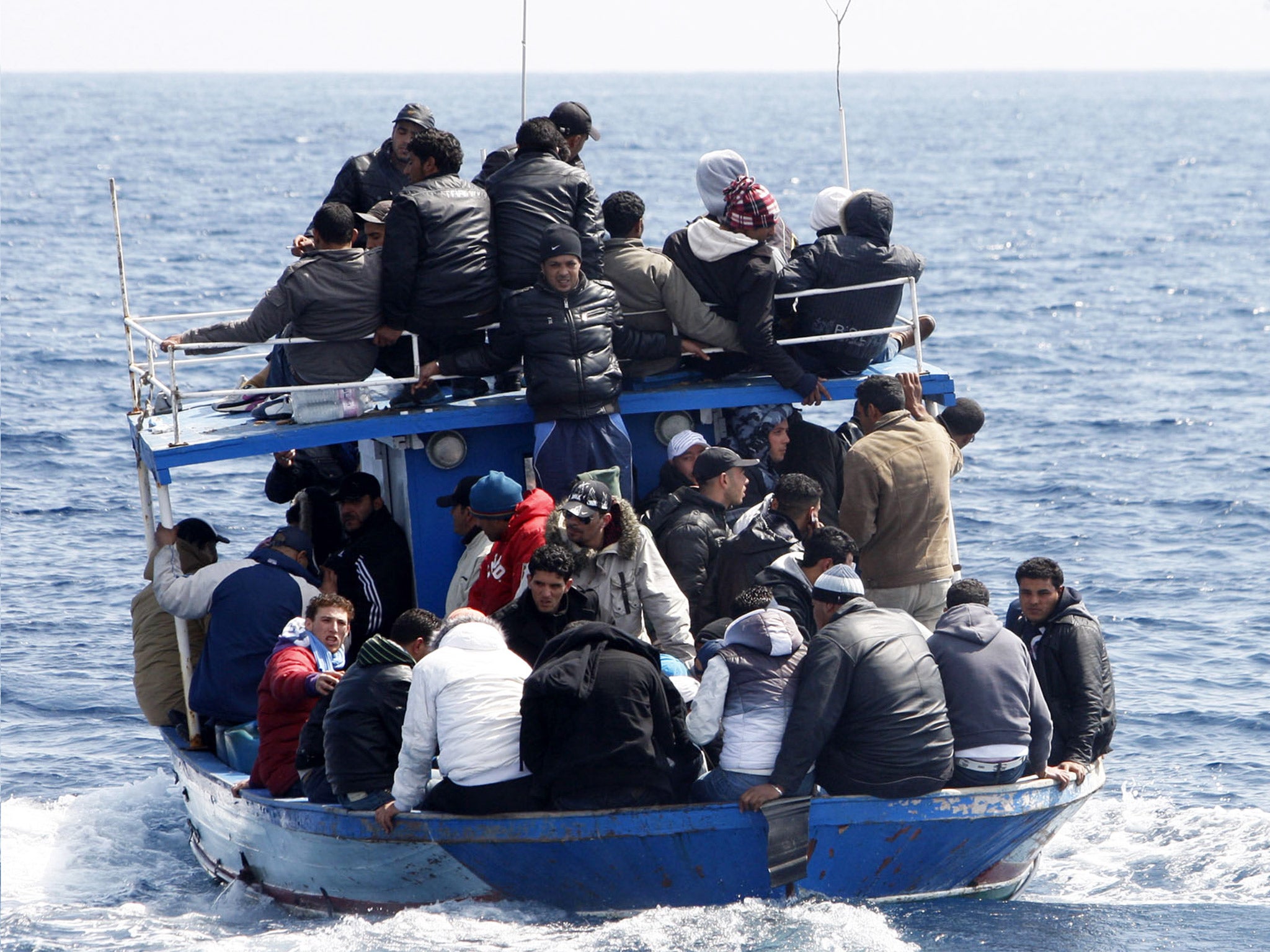The most lethal route in the world: 3,419 migrants died crossing Mediterranean from Africa to Europe this year
News of the grim 2014 death toll comes as the Italian navy winds down its Mare Nostrum rescue mission

Your support helps us to tell the story
From reproductive rights to climate change to Big Tech, The Independent is on the ground when the story is developing. Whether it's investigating the financials of Elon Musk's pro-Trump PAC or producing our latest documentary, 'The A Word', which shines a light on the American women fighting for reproductive rights, we know how important it is to parse out the facts from the messaging.
At such a critical moment in US history, we need reporters on the ground. Your donation allows us to keep sending journalists to speak to both sides of the story.
The Independent is trusted by Americans across the entire political spectrum. And unlike many other quality news outlets, we choose not to lock Americans out of our reporting and analysis with paywalls. We believe quality journalism should be available to everyone, paid for by those who can afford it.
Your support makes all the difference.The Mediterranean crossing from African to Europe was described as “the most lethal route in the world” by the UN agency for refugees on Wednesday, after it announced a record 3,419 migrants had lost their lives this year crossing the sea on rickety boats.
News of the grim 2014 death toll comes as the Italian navy winds down its Mare Nostrum rescue mission, which in the past 12 months has saved 150,000 people fleeing poverty and war zones on the African continent.
Instead, Europe’s border protection agency Frontex has launched the Triton operation to rescue migrants in danger. But this has resources of just €3m (£2.4m) a month – a third of what the Italian Navy has been spending in the past year.
Zeid Raad al-Hussein, the UN High Commissioner for Human Rights, seized on the record death toll to condemn rich nations for what he saw as their indifference to waves of global migration.
“The lack of concern that we see in many countries for the suffering and exploitation of such desperate people is deeply shocking,” he said, at the start of a major conference on migration in Geneva. He added: “Rich countries must not become gated communities, their people averting their eyes from the bloodstains in the driveway.”
To the anger of campaign groups the British Government has said it will not support future search and rescue operations beyond supplying a technical expert to Triton, claiming such missions simply encourage more migrants to make the journey.
Britain’s position was echoed yesterday by Matteo Salvini, the head of Italy’s right-wing Northern League party, which has surged in the polls on its anti-immigration ticket. “The 3,419 deaths in the Mediterranean are on the conscience of those who wanted operation Mare Nostrum,” said Mr Salvini at the Foreign Press Association in Rome.
But Antonio Guterres, the UN High Commissioner for Refugees, dismissed this argument. “If entire families are risking their lives at sea today, it’s because they have already lost everything else and see no other option to find safety,” he said. All told, a record 348,000 migrants and refugees attempted risky sea crossings this year in search of a better life in Europe, South-east Asia, the Caribbean and the Middle East, 4,272 of them dying in the process, according to the UN refugee agency.
Most of those crossing the Mediterranean headed to Italy first, and the country has rescued more than 150,000 people so far this year. Italy set up its Mare Nostrum rescue mission in 2013 to reduce the death toll, following two migrant disasters in October that year. Mare Nostrum officially ends on 31 December, although the Italian navy has indicated it intends to continue rescue missions.
Meanwhile, the exodus from Africa and Asia continues. A total of 408 migrants, mainly Syrians, have been rescued after spending six days adrift on a boat in the Mediterranean, Spanish officials said. The migrant craft was intercepted by a Spanish oceanographic vessel on Tuesday about 150 nautical miles east of the Sicilian port of Augusta.
Join our commenting forum
Join thought-provoking conversations, follow other Independent readers and see their replies
Comments